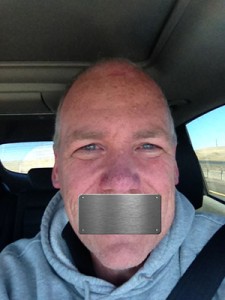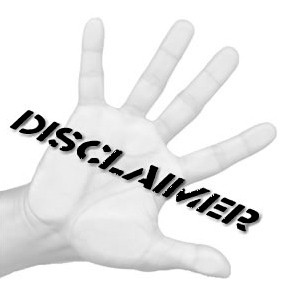First of all I want to say this: I recognize that bipolar disorder is a serious condition that affects many people worldwide. I myself have known bipolar individuals and my heart goes out to any person truly afflicted with this condition. I realize it’s no laughing matter.
 I admit it: bad reviews sometimes get to me. Over the years I’ve thickened my skin, and I know you can’t please everyone (in fact, like most writers I want to be read my millions one day and when that happens, look out—no one remains unscathed once they reach a certain level of exposure). So what I’m saying is, I get it. You don’t have to tell me to “take the good with the bad” or “toughen up” or anything else. Not because I don’t agree with you—because I DO. I just can’t always help how the pointy end of the spear makes me feel.
I admit it: bad reviews sometimes get to me. Over the years I’ve thickened my skin, and I know you can’t please everyone (in fact, like most writers I want to be read my millions one day and when that happens, look out—no one remains unscathed once they reach a certain level of exposure). So what I’m saying is, I get it. You don’t have to tell me to “take the good with the bad” or “toughen up” or anything else. Not because I don’t agree with you—because I DO. I just can’t always help how the pointy end of the spear makes me feel.
But I am getting better. I am consciously avoiding debate. I’m grateful for people taking the time to review my books (good or bad). I’ve always been fairly adept at listening to critiques in workshops, from my editors, and from beta readers.
I have a lot of writer friends and more than a few have heartburn with what they perceive as “one hit wonders” (reviews by “readers” that seem as if written with the sole purpose of hurting the author—so vague and incorrect sometimes that it seems as if the person never even read the book in question). Honestly, these types of reviews don’t bother me for long. Yes, they sting. But in the end I can reason them into submission. I am my own worst critic most of the time so it’s fairly easy for me to recognize legitimate criticism from that lobbed like a shit sandwich over the wall hoping for the top of the author’s melon.
But I had a review I stomached a while back that has stuck in my intestines like a strand of barbed wire since the day I read it. And here’s the twist:
It’s not because it’s a poor review. It’s not because it’s a one-star review. It’s neither. The review that bewildered me is a three-star review and half of it talks about me like I am actually one hell of a writer. Now I can almost hear what you’re thinking. So it’s a review that combines the good along with the bad?
Yes, it does. The review’s title says it all:
I wish I could consider this one of the most honest reviews in my cadre. The problem is, the “bad” things of which this reviewer accuses me are almost entirely untrue. I can take criticism of my work—I will try to learn from it—but please, be honest. The part that makes this review such an impossible pill to swallow, however, is (ironically) its smooth candy coating.
Here’s the first part of the review:
“RS Guthrie’s Black Beast is a cool, dark, edgy thrillride. It straddles genre lines ably: police procedural/supernatural/thriller, which can’t be easy. The major good guys and baddies are very well drawn – I particularly enjoyed drug kingpin/Obeah-practitioner Calypso. Guthrie treats the subject of grief (and implied survivor guilt) very well, too. Overall, where he sticks to his strengths – dialogue, action, police procedural elements – this is a ripping good yarn.”
Wow, right? What writer wouldn’t appreciate the words above? But wait, the reviewer is softening me up with seemingly harmless body blows. Here comes the right hook:
“BUT: I kept wanting to shake Guthrie’s hand and shake him by his collar simultaneously. The book is riddled with too many technical errors to count. Grammar is sometimes poor, and the book is rife with incorrect usage. Descriptions can be laughably bad. Guthrie often sounds as though he has swallowed a thesaurus and is burping up words at random.
Then there are the nonfactual facts. Samhain is not, and has never been, a celtic “God of Death.” Rather, as most people know and history bears out, it is the day of the year when celts believed the door between the living and the dead swung open. Obeah is not a voodoo priest,as Guthrie states, but is a religious practice common to Jamaica and other areas. Freud did not say that God is dead – that was Nietsche. I could go on. Playing fast and loose with common information is a defect easily prevented by a little research.”
Ouch. And I don’t mean ouch because it’s true, I mean OUCH because it’s as if the reader is suddenly talking about a different book. “Laughably bad”? “Too many technical errors to count”? Poor grammar and “rife with incorrect usage”?
(I have to profess a wicked admiration of “swallowed a thesaurus and is burping up words at random”, the fact that it was undeservedly hooked in my gizzard notwithstanding.)
But seriously, are a few examples too much to ask? I have to say, if I had such salacious examples of a writer burping up random nonsensical phrases you wouldn’t be able to STOP me from quoting! That’s like saying “I heard the most ABSURD thing today…” and then moving on to other subjects.
One twisted irony is that I never stated Obeah correlated to Voodoo — one of my characters did, and then the antagonist corrected him. (And I quote: “The Obeah have nothing to do with voodoo, I assure you,” Calypso said.)
The worst accusation of all, however, is the implication that I said Freud proclaimed “God is dead.” Why you might ask? Because she got me on that one. And it nauseates me to no end because my villain originally had Nietzsche’s “God is Dead” tattooed on his chest (I removed that part, but I typo-ed it BIG TIME when I added it back in using my protagonist’s internal monologue).
I am aghast at what I did, but I would never deny it.
The reviewer then, after flaying me, finishes thusly, kindly:
“It’s clear to me that Mr. Guthrie has talent as a writer – he has some skills that can’t be taught – but he would benefit from a professional review from an editor such as one can find at Poets and Writers or Writer’s Digest.
I hope to see more of Mr. Guthrie’s work.”
 Speechless. This review honestly rendered me speechless. More than that it made me want to sit down with the reviewer and buy her a drink. I wanted to drill into the mind behind this review. She clearly thought highly of me as a writer. She also clearly thought I should be drawn, quartered, and burned at the stake. Her two other book reviews were of books by Anne Rice and Stephen King. One-star reviews, both. In fact, I actually had to admire her pith with the Rice review:
Speechless. This review honestly rendered me speechless. More than that it made me want to sit down with the reviewer and buy her a drink. I wanted to drill into the mind behind this review. She clearly thought highly of me as a writer. She also clearly thought I should be drawn, quartered, and burned at the stake. Her two other book reviews were of books by Anne Rice and Stephen King. One-star reviews, both. In fact, I actually had to admire her pith with the Rice review:
“OK, Amazon requires at least 20 words: Lame. Annoying. Pointless. Potboiler. Laughable. Absurd. Pathetic. Waste of money. Waste of time. Lackluster. Insulting. Poorly written. Feeble. Lousy. And WEAK!”
Based on that review (and her one-star for Stephen King), I tried to see the review she gave me as encouraging. Yet the splinters of her duplicity festered on, lodged not in my ego, Dr. FREUD, but rather in my neocortex (the part of the brain responsible, among other things, for spatial reasoning and logic).
Love me or hate me, dammit, but enough of this passive-aggressive horse puckey.
(I know, I know…it sounds like I’m talking about a lover who jilted me. Time to be speechless again. If you don’t have anything nice to say…right?)
Finally, if you’re wondering “why the soap box (particularly weeks post-review)?” it’s simple: I blogged about grammar and punctuation and using an editor and I immediately thought of my like-me / hate-me reviewer and her suggestion I check out “Poets and Writers” or “Writer’s Digest”. (And yes, that one stung, too.)
 Seriously, though, I’ve decided to simply be quiet (now, at least), take the good with the bad, and feel gratitude for the nice things the reviewer said about my writing. Even had she not caught me red-handed with my stupendously asinine Freud miscue, I would have chosen the high road anyway, rather than debate her or ask for examples. After all, I do respect her opinion [if not her spelling of (sic) Nietsche].
Seriously, though, I’ve decided to simply be quiet (now, at least), take the good with the bad, and feel gratitude for the nice things the reviewer said about my writing. Even had she not caught me red-handed with my stupendously asinine Freud miscue, I would have chosen the high road anyway, rather than debate her or ask for examples. After all, I do respect her opinion [if not her spelling of (sic) Nietsche].
Couldn’t resist. I guess my ego doth know no bounds.
Talking about Freud also helped me to realize something else: arguments can backfire.
The last thing I need is a reviewer stalking me down and putting an ice pick right through my neocortex.
~~~~~~~~~~~~~~~~~~~~~~~~~~~~~~~~~~
The blank page is dead…long live the blank page.
~~~~~~~~~~~~~~~~~~~~~~~~~~~~~~~~~~
 Author known to use spontaneous satire, sarcasm, and unannounced injections of pith or witticisms which may not be suitable for humorless or otherwise jest-challenged individuals. (Witticisms not guaranteed to be witty, funny, comical, hilarious, clever, scintillating, whimsical, wise, endearing, keen, savvy, sagacious, penetrating, fanciful, or otherwise enjoyable. The Surgeon General has determined through laboratory testing that sarcasm can be dangerous, even in small amounts, and should not be ingested by those who are serious, somber, pensive, weighty, funereal, unsmiling, poker-faced, sober, or pregnant.)
Author known to use spontaneous satire, sarcasm, and unannounced injections of pith or witticisms which may not be suitable for humorless or otherwise jest-challenged individuals. (Witticisms not guaranteed to be witty, funny, comical, hilarious, clever, scintillating, whimsical, wise, endearing, keen, savvy, sagacious, penetrating, fanciful, or otherwise enjoyable. The Surgeon General has determined through laboratory testing that sarcasm can be dangerous, even in small amounts, and should not be ingested by those who are serious, somber, pensive, weighty, funereal, unsmiling, poker-faced, sober, or pregnant.)




I saw the review you are responding to here and was equally nonplussed. I read your book, Black Beast, and did not find grammar or usage mistakes. So I wondered what the reviewer was talking about.
We’ve gone way beyond the days when you could trust everything you read in a review – that’s why it’s good there’s this debate about reviews. Some reviewers seem to have a private agenda. The saving grace is that interested readers can scan ten or twenty reviews in a few short minutes to get a good idea of what awaits them in your book. The fact that a lot of reviews are collected in one place, e.g. Amazon or Goodreads, is a great improvement over the old days when you opened up your newspaper to find one review written by one reviewer about one book which you might or might not be interested in.
Excellent post. I like your attitude about it. What else can you do?
True enough. Sometimes a rant can be fun (and therapeutic) if it’s not too serious about itself. 😉
It takes all kinds to make a world Rob. Evidently this particular reviewer did not study under the same wise instructor we were so fortunate to enjoy. Pity the fool who thinks herself the ‘smartest guy in the room’ and then opens her mouth, or keyboard, to disprove the point. 😀
Rob, I feel ya. My day hasn’t come quite yet but I have a feeling Orchids may be next on her list, ha ha! But I’m a therapist, and I consider the framework of people’s perspective. Some personalities truly thrive on sowing discord and confusion. They gain power from it, and from baffling with bull so others can’t respond authentically. They bully, but subtly. Her review on Rice, while possibly a little funny, shows me this person is one of these. Rice, even in a religious phase, etc, is an epic writer, a master of language and imagery.
Shake it off. There are a lot of nuts in the world. Don’t give her any more power. It would make her day to find this blog post.
Thanks, Toby! Yeah, I know…I decided to blog semi-tongue-in-cheek rather than engage her in commentary debate on the review. Love your perspective as a therapist—and I totally agree with your analysis of her Rice review. One thing is certain: as we gain more and more exposure these types of power-mongers crawling out of the woodwork are an inevitability. In this instance it helped me just to rant half-seriously. (Okay, three-quarters seriously.) Appreciate the read and comment. Take care! 😀
Rob, of all the things I could say about your writing… “The book is riddled with too many technical errors to count. Grammar is sometimes poor, and the book is rife with incorrect usage.” Well, it’s just not true.
I neglected to mention in my review (for that I am sorry) that your formatting was awesome and I only found 1 punctuation glitch! I say glitch because I’m certain it was unintentional.
I’ve also read some real crap in my life, and thrown more than one book in the trash… but yours? Never.
Focus on what matters… there are more for you than against you.
I’m one of them. (For you that is) 🙂
I’m only just now venturing into the review territory on my blog and I have to admit to feeling a bit nervous about that. As both a writer and editor, I understand how frustrating it is to look for the typos, the loop holes, the plot holes, the grammatical errors, and still push on for as close to perfection as you can get. And as that editor I can say, without reserve, I have NEVER read a book, professionally or independently published, which did not contain at least an error or two. They happen.
That said, if I noticed that many errors in a book (and I have to wonder how closely they read the book and what their qualifications are for making those ascertations after reading some of your other commenters) I think my first move would be to speak with the author directly, if at all possible.
In this age of self-publishing, there are many folks out there publishing content no self-respecting 5th grader would hand in to their teacher. Usually if a writer had taken the trouble to publish their work and are encouraging reviews of their work, they are interested in finding out if it is rife with errors or typos, or the occasional Freudian slip (Teehee, had to put that in too).
What concerns me most is that as an editor, I spell these kinds of situations out for writers often … their tenses might be confused, their wording might be awkward for any number of grammatical reasons, or they might have gotten characters confused. If you are going to review something and assign notable errors, you should be prepared to at least throw in the evidence to back up your claim. Period. Otherwise, how the heck should you be taken seriously?
Crazily enough, I have no sub-par books set to be reviewed on my blog … yet. I shudder at the day when I think of even publishing a 3-star review, and I know it might happen. But right now I don’t even review a book for potential publication if it doesn’t fit with my audience or if the work isn’t well-written.
I say take your earlier commentor’s suggestion and overlook this review. If they couldn’t be bothered to give you examples of this work, and you have received reviews that you believe to be honestly written that are contrary to this reviewer’s opinion … let it go. Some reviewers think their responsibility is to point out every typo, or to see errors where none exist. Maybe it’s just me, but I don’t see how that is constructive, unless I’m the copy-editor being paid to review the book, and not just writing about it.
Good luck to you!
Rob,
Congratulations on the review. You inspired a reader to take time out of her day and offer her opinion.
But it is merely that: her opinion.
I won’t bother to say what opinions are like.
That said, her review strikes me as more positive than negative. So take heart in that.
Further, compare and contrast her review of your work with her reviews of Rice and King. You came out on top. So what the hell are you whining about?
You’re breaking the cardinal rule of ‘Never answer a critic.’ Which is right up there with ‘Never discuss a work-in-progress.’
Now, with all THAT being said, I totally, 100,000,000,000% get what you’re saying.
A few weeks ago, I had my first book returned for a refund. Somebody bought it, read it, and returned it via Amazon’s 30-day return policy.
It says it right there on my KDP Reports page.
I look at it almost every day.
Almost every day, and sometimes at night while I’m waiting to fall asleep, and sometimes while I’m in line at the post office, and sometimes while I’m sitting mindlessly at a red light, and almost every day when I open Chrome and wait for the tabs to open, I think about that person. Who is he/she? Did they buy the story, read it, think it sucked big poopy ass, and return it with a maniacal glee because they were so outraged to have wasted their time and precious $0.99? Or did they buy it, read it, love it, and get a refund because they’re in training for the 2012 World Cheapskate Games (which are being held in Gilroy, California this year, by the way; of interest is that Gilroy is home to the annual Garlic Festival. I went one year circa 1993, anticipating garlic ice cream, but we arrived around 4 o’clock and the festival was over and all the cars were driving in the opposite direction.)
There are no answers to these questions. It’s not worth thinking about.
Similarly, you wrote your novel, did the best you could with it, and that’s that. Unless there are genuine errors (and it sounds like your reviewer caught you out in a few, so props to her!), then it all comes down to opinion.
If she found some errors, this is good news for you. If she incorrectly found some errors, this is also good news for you because it means she’s human and made mistakes herself by not reading astutely enough.
But all in all, she sounds like an informed, intelligent, educated, fairly-well-read individual, but a person who also tends toward the negative. She’s probably that person everyone mostly likes but tend to get irritated with because she responds to good news with pessimism and to bad news with pleasure. It’s her world view, which is far too complex to be dissected here.
At the end of the day, Rob, after reading her review of your work, I would decide that your book is worth buying. ‘Nough said.